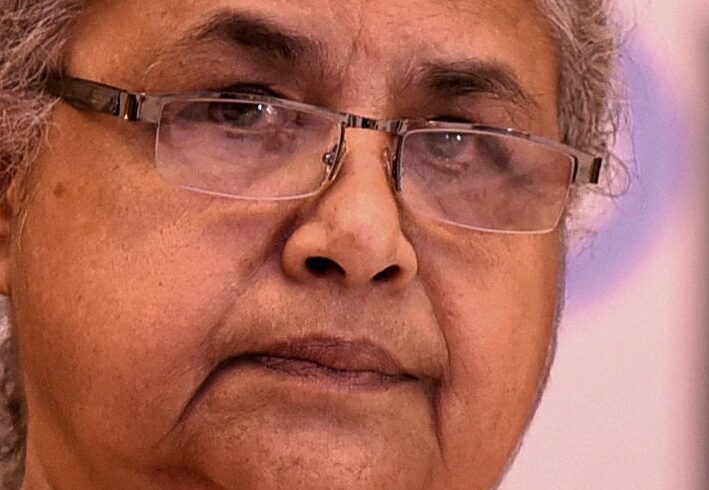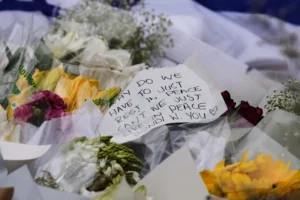
The first woman to be chief justice of Nepal’s Supreme Court will be sworn in to lead the country’s government after deadly protests ousted the prime minister.
Known for her insistence on integrity, Sushila Karki has often spoken about the need for transparency and independence in a judiciary frequently under intense political pressure.
She was sworn in by President Ram Chandra Poudel at the presidential residence in a small ceremony broadcast on state-run television.
Politicians, officials and foreign diplomats invited at the ceremony congratulated her.
Ms Karki emerged as the leading candidate by many “Gen Z” representatives, the loose umbrella title of the protest movement.
The 73-year-old told local media that the Gen Z protesters had told her that “they believe in me” to lead for “a short time for the purpose of doing elections”.
“She is a credible choice to lead the interim government,” Anil Kumar Sinha, a former justice of the Supreme Court who worked with Ms Karki, told AFP.
“Her integrity has never been in doubt, and she is not someone who can be intimidated or easily influenced. She is courageous and not swayed by pressure.”
Violent riots up-ended the country earlier this week, prompting Prime Minister Khadga Prasad Sharma Oli to resign on Tuesday and flee his official residence.
Nepal’s army took control of the capital Tuesday night, and started negotiations among the protesters, army and president over an interim government.
The clean up is continuing following the riots which damaged buildings across Nepal’s capital Kathmandu. (Reuters: Adnan Abidi)
Violence over the past week left at least 51 people dead, police said Friday.
Many of the dead were protesters killed by police fire and some were inmates trying to break out of a jail in the capital, Kathmandu.
Three police officers also were among the dead, police said.
Karki backs youth to change country
In a speech broadcast on Nepalese media earlier this year, she spoke of ingrained corruption.
“We see it everywhere but we don’t speak — now we need the youth to speak up, take the lead and stand in elections”, she said.
“What I have seen in the last 35 years does not work, I am 100 per cent in favour of youth coming forward.”
Her tenure as chief justice, from 2016 to 2017, was brief but significant — challenging gender stereotypes and facing down politicians over corruption.
Ms Karki came of age in a society where women rarely entered the legal profession.
Born in 1952 in Biratnagar, an industrial town in eastern Nepal, she earned degrees in political science in India and in law in Kathmandu.
She began her career as a lawyer in 1979, and quickly gained a reputation as a fearless advocate, often taking up cases others avoided.
A summary of the Nepal riots
In 2012, Ms Karki was one of two presiding Supreme Court judges who jailed a serving government minister for corruption — a first at the time for Nepal in its battle against a culture of graft.
In 2017, the government tried to impeach her as chief justice after she overturned its choice for chief of police.
The United Nations called the impeachment “politically motivated” and the move was blocked. She stepped down from the post at her retirement.
Nepal emerged from a brutal decade-long Maoist insurgency in 2006, and in 2008, the end of the country’s 240-year-old Hindu monarchy.
The transformation to a federal state was marred by political infighting and successive governments have dragged their feet on bringing perpetrators of abuses committed during the civil war to justice.
But it was under Ms Karki’s watch as chief justice that a court in 2017 sentenced three soldiers to 20 years in jail for the murder of a teenage girl, at the time only the second conviction for crimes committed during the war.
She will be Nepal’s first woman prime minister, but not its first woman leader — Bidya Devi Bhandari held the largely ceremonial role of president for two terms from 2015 to 2023.
ABC/wires





